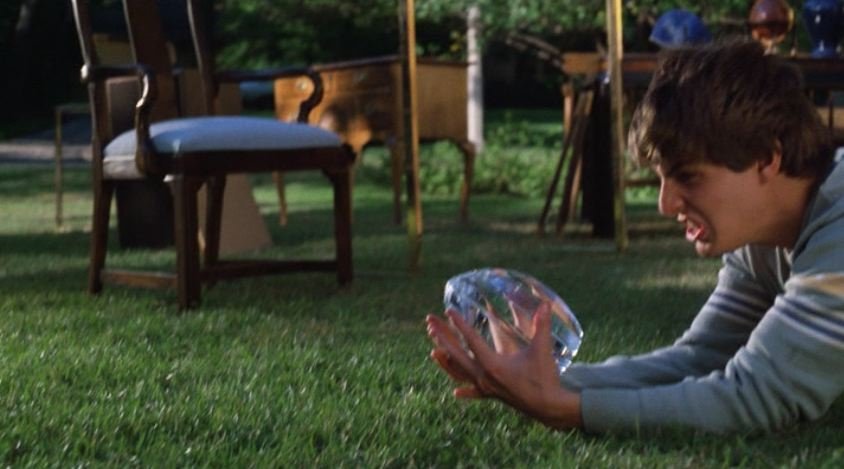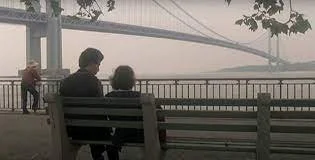Searching for meaning in Film
I love watching movies! Maybe not on the level of Quentin Tarantino, but I certainly enjoy a creative film that makes me think, laugh, cry, and feel as if I’m along for the ride.
Much of my humor and creativity is inspired by content I’ve watched on television and at times, I think that I may not have had an original thought in my head.
I’m reminded of this even as I type this post, reminiscing on the closing scene of every Doogie Howser MD, where Doogie types into his computer journal, the lesson of the day.
We all need a friend as loyal as Vinnie Delpino
Sometimes I kick myself for not taking the last few classes at UC Davis to complete a second minor in Film Studies. At least I’d have a degree for the justification of this post.
Besides writing this blog or geeking out on the latest Wes Anderson movie, my Film Studies curriculum has sadly proven relatively useless.
One of my favorite classes (besides Personal Finance) at UC Davis was an Italian Cinema class. It satisfied several credits as an elective, and I was able to watch and write about some fantastic films.
Side Note: I made cannolis for the class to earn extra credit. They were a hit!
It was in this class that I was first introduced to the concept of movie symbolism.
What is movie symbolism?
According to nofilmschool.com, Symbolism is the art of using symbols to represent abstract ideas or concepts. Symbols can be objects, characters, colors, sounds, settings, or even specific camera angles and editing techniques.
By using symbolism, writers and directors can convey complex ideas and emotions without explicitly stating them, allowing the audience to make connections between seemingly unrelated elements in the story.
When I think of some of my favorite films (ones that I find incredibly rewatchable), they have a common denominator. There are themes and symbols that give weight to the film, which turns a story into a lesson or analogy of broader issues in life.
Take, for instance, the movie Risky Business
Risky Business is about a teenager named Joel Goodsen (which sounds a lot like good-SON) who, while his parents are on vacation, essentially ends up turning his parents’ suburban home into a brothel.
Joel is the golden child on track for an Ivy League scholarship, but when one evening of sowing his wild oats goes awry, his entire future becomes a question mark.
Risky Business is considered Tom Cruise’s breakout film. There are several classic movie moments in Risky Business, like when Joel comes dancing out to Bob Segers’ Old Time Rock and Roll.
Despite this memorable scene, the film score by Tangerine Dream, and incredible one-liners like “I don’t believe this, I’ve got a Trig midterm tomorrow, and I’m being chased by Guido, the Killer Pimp,” are cinematic gold.
What stands out to me when I think about Risky Business is the symbolism of Joel’s mother’s prized crystal glass egg.
The egg is cracked!
The crystal egg in this film represents Joel. In the beginning, it’s perfect, put up on a pedestal and displayed by his parents with a light shining through it.
By the end of the film, one of the prostitutes who helped con Joel out of his savings, throws the “artsy-fartsy” thing up in the air and Joel races to catch it before it completely shatters when falling back down to earth.
Joel heroically catches the egg, preserving it’s entirety, but it ends up with a slight imperfection.
Read through the following dialogue between Joel Goodsen and his mother at the conclusion of the film.
Joel's Mother: Joel?
Joel: Yes, Mom?
Joel's Mother: Can I talk to you for a minute? What happened to my egg?
Joel: What do you mean?
Joel's Mother: There's a crack in it!
Joel: You're kidding!
Joel's Mother: No, Joel, I'm not kidding. There's a small crack, inside the egg.
Joel's Father: What's wrong?
Joel's Mother: My egg is ruined.
Joel's Father: What happened?
Joel: I don't know.
Joel's Mother: You don't know.
Joel: Mom, maybe it was there before.
Joel's Mother: I don't think so, Joel. How could you let this happen?
Joel: I'm sorry.
Joel's Mother: This is so damned irresponsible of you!
Joel's Father: We'll get another one. Joel will pay for it.
Joel: Sure, I'll pay for it.
Joel's Mother: Where will you get the money to pay for something like that? I'm very disappointed in you. [walks out]
Joel's Father: She'll be all right. Why don't you put in some yard work?
To reinforce the concept of symbolism, lets go back and read the the dialogue again. However, this time, we’ll switch the word “egg” out for “son”.
Joel's Mother: Joel?
Joel: Yes, Mom?
Joel's Mother: Can I talk to you for a minute? What happened to my SON?
Joel: What do you mean?
Joel's Mother: There's a crack in it!
Joel: You're kidding!
Joel's Mother: No, Joel, I'm not kidding. There's a small crack, inside the SON.
Joel's Father: What's wrong?
Joel's Mother: My SON is ruined.
Joel's Father: What happened?
Joel: I don't know.
Joel's Mother: You don't know.
Joel: Mom, maybe it was there before.
Joel's Mother: I don't think so, Joel. How could you let this happen?
Joel: I'm sorry.
Joel's Mother: This is so damned irresponsible of you!
The conversation between Joel and his mother becomes much deeper and more powerful when you recognize that the egg is a symbolic representation of Joel in the eyes of his mother.
Prior to his parents’ return from vacation, Joel frantically gets their picturesque upper-class suburban home back in order. This feat is established in the final moments when his parents walk through the door. On the outside, everything looks absolutely perfect, but his mother still notices that one tiny flaw in the egg.
In the end, things work out for Joel. He completes his “heroes journey” which began with him as a naive, insecure, inexperienced boy and he transforms into a man with confidence, humility, and a purse of emotional capital that will pay dividends in the coming chapters of his youth.
“Princeton could use a man like Joel”
Like the egg, Joel began the film as a perfect trophy to be displayed by his parents. In the conclusion, he is flawed and beautiful to the world, yet imperfect to the only people that could recognize his imperfections, his parents.
I love this symbolism. I never felt the pressure that Joel felt from his parents. I also never turned my parent’s home into a brothel while they were on vacation!
I may have borrowed my Dad’s sports car with my best friend Johnny to “test the battery” and turned up the home’s stereo to have a “preponderance of bass” while Mom and Dad were on vacation.
When I first saw Risky Business as a teenager, I related to so many different themes in this film. Uncertainty about one’s future, sex, and relationships all come into play, and Joel is the vehicle that takes us along for the ride.
Themes, symbols, and motifs provide depth to films that help us relate and keep us coming back for more.
Next time you see a film that shows “bridges”, think about the concept of “getting there” or “making it.” This symbolism is highlighted beautifully in the film Saturday Night Fever with John Travolta.
Tony and Stefanie sitting in front of the Verrazzano-Narrows Bridge.
You may even notice the oranges as symbolism for the harbinger of danger in The Godfather.
There are several scenes throughout The Godfather where oranges are present before a death or dangerous moment occurs.
If you enjoyed this post and also love to rewatch memorable films, then I’d encourage you to check out the podcast The Rewatchables with Bill Simmons.
A friend of mine had suggested it to me one day when cracked each other up discussing the lovable absurdities of films like Top Gun and Teen Wolf. I highly recommend it. Thank you, Adam!
Next time you turn on one of your favorite films, take a deeper look at why it resonates with you. Maybe there’s some deep-rooted symbolism that you can relate to that’s always been there, but you didn’t know Enough About It to notice?
https://nofilmschool.com/symbolism-film-and-tv-definition-and-examples







